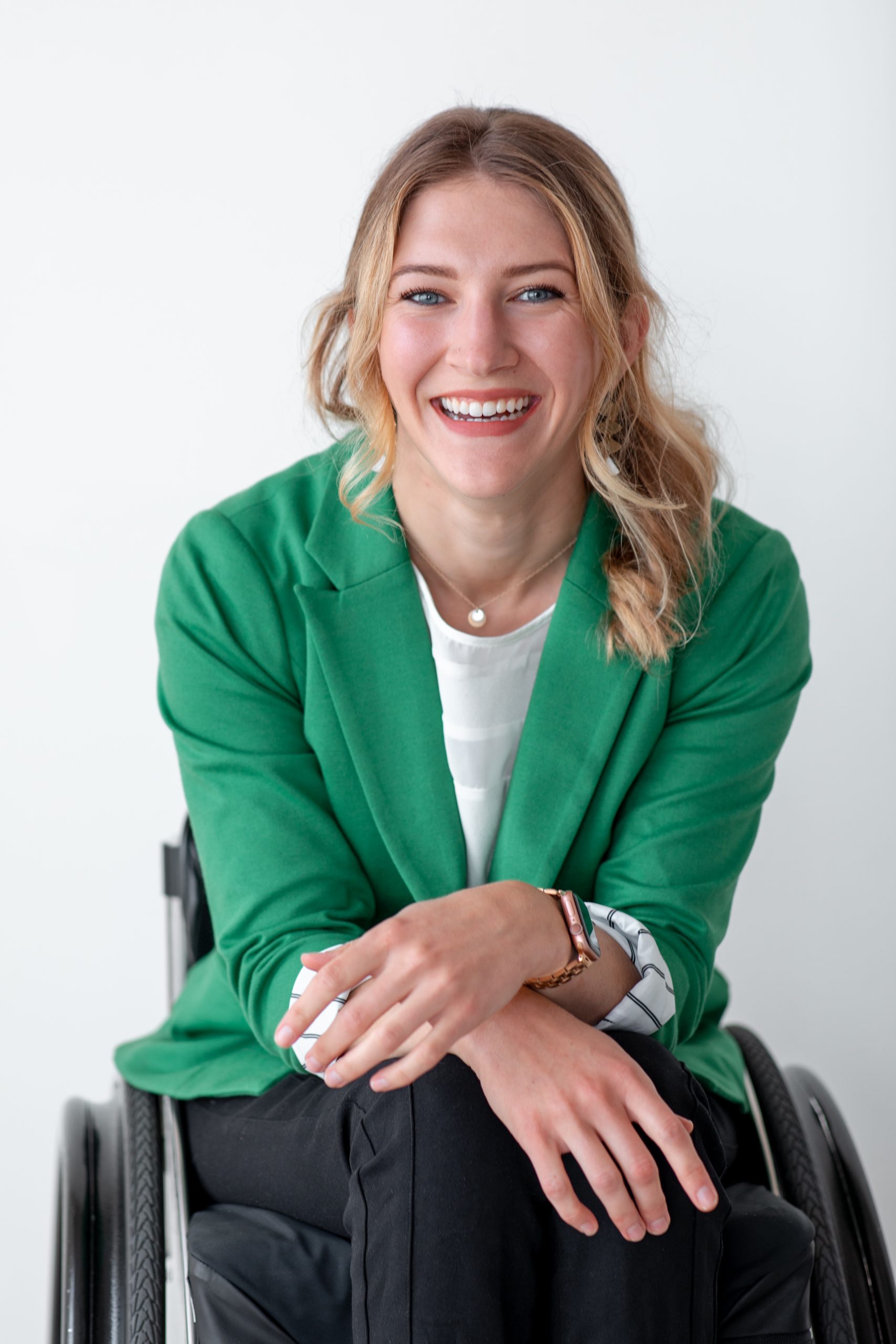Alum Named 2022 White House Fellow.

Photo credit: Lauren Ruhe
Alum Named 2022 White House Fellow
Elizabeth Ragan (SPH’15) is putting her public health skills and experience into practice at the national level, spending her fellowship year working at the Office of Science and Technology Policy.
Long before the COVID-19 pandemic shifted the way we live, work, and play, School of Public Health alum Elizabeth Ragan (SPH’15) was fascinated by the complexity of infectious diseases and their undeniable and inequitable effect on the health of populations. She came to SPH with a desire to address the upstream causes of these inequities, pursuing her MPH in epidemiology and global health.
Now, Ragan is putting her public health skills and experience into practice at the national level as a member of the 2022-2023 class of White House Fellows.
Founded in 1964, the White House Fellows program provides young leaders from a broad cross-section of professions with first-hand experience working at the highest levels of government. Fellows are selected through a highly competitive, non-partisan process, and spend a year working with senior White House staff, Cabinet Secretaries, and other top-ranking Administration officials to better understand policymaking and leadership at the federal level. Throughout the fellowship, fellows also participate in an education program where they hear from leaders from both the private and public sectors and study US policy in action, both domestically and internationally.
Ragan is spending her fellowship year working at the Office of Science and Technology Policy, where she is supporting the implementation of the American Pandemic Preparedness Plan. The plan offers a bold vision for advancing the United States’ capabilities in preventing and responding to future pandemic threats.
“This fellowship has been an incredible opportunity for me to align my public health background and infectious disease experience in a completely different sector and level than I have worked before,” she says. “It has also allowed me to think about the larger picture of pandemic response through a lens of innovation. I truly feel like I am doing my dream job.”
Prior to being named a White House Fellow, Ragan was working at Boston Medical Center (BMC) as a senior project manager in research operations, where she focused on bolstering systems and processes to better support research. Before this, she managed a range of domestic and global infectious disease research portfolios at BMC. In response to COVID-19, she worked with BMC leadership to launch and sustain an institutional biorepository to support critical pandemic response research, and she also managed a Massachusetts-wide program addressing inequitable access to COVID-19 vaccines and care.
In addition to her public health work, Ragan is a lifelong outdoor enthusiast, artist, and paraplegic—the latter a more recent identifier due to a climbing accident in 2019. While her personal and professional lives have been transformed in the wake of her accident, Ragan has not faltered in her drive to do more. She continues to explore the outdoors through adaptive sports and activities, such as handcycling, and has served in a number of positions, including as a member of Oregon Health Authority’s Health Equity Committee and BMC’s Accessibility Committee, to advocate for those living with disabilities—seen and unseen.
“When you acquire a disability, it can take you from being a person with relative privilege to a member of an underrepresented community in an instant,” says Ragan. “I enter conversations now with a heightened awareness of my own privilege, and more than ever, I feel a sense of responsibility for using whatever voice and access that I have because of my education and professional roles to speak on behalf of a community that is often forgotten. It is really a natural extension of the public health work I have been doing throughout my career.”
As COVID-19 continues to expose gaps in health equity and access across the board, Ragan hopes to bring this DEI-centered perspective to her fellowship position and pandemic preparedness work at the White House.
“When we talk about emergency response, we don’t consider people with mobility challenges or complex health needs. We think about what the average person looks like and how to get them out of a disaster setting,” she says. “But the reality is, a quarter of the US population has a disability, and we are not doing the work that we need to do to ensure that these individuals truly have a seat at the table.
“My accident has impacted the way I approach my work every day, as well as what I believe public health and health equity means. It has added a new hue to the lens that I view the world through, and it has absolutely made me quicker to speak up for those who can’t.”
The views expressed here do not represent those of the White House or the White House Office of Science and Technology Policy. Applications for the 2023-2024 White House Fellowship are now open. For more information and to apply, click here.